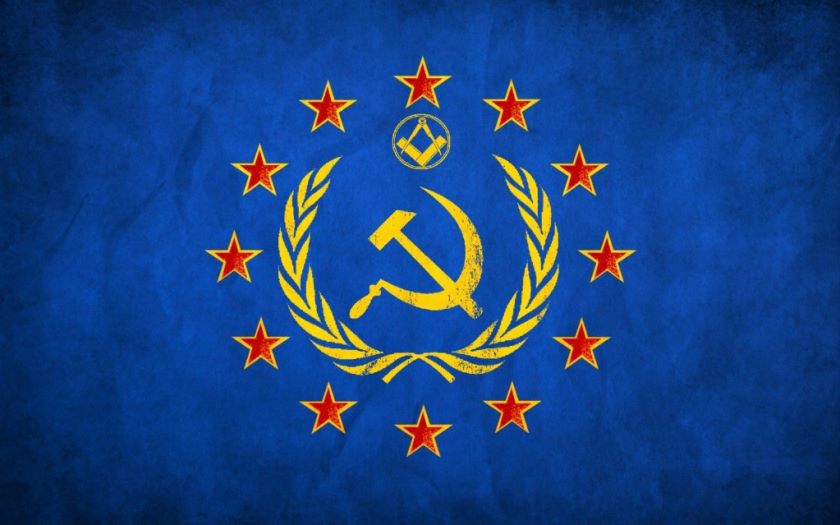Giuseppe Sandro Mela.
2017-12-18.
L’Unione Europea è celebre al mondo per il suo overkilling normativo. C’è una normativa per tutto. La normativa sulla coltivazione delle melanzane occupa diciassette volumi di circa mille pagine l’uno, mentre quella sulla coltivazione delle zucchine supera a stento le ottomila.
Dispone anche di uno sterminato esercito di funzionari che sorvegliano che tali regolamenti e norme siano applicati alla lettera, pena severissime multe e l’ostracismo politico.
Se però, se però….
Se però si fosse amici degli amici, allora i regolamenti servirebbero per quelli che proprio non sanno come regolarsi.
E gli amici sanno benissimo come regolarsi.
La storia è lungo e risale ai primi anni del novanta, al crollo dell’Unione Sovietica.
«[Fico] was speaking for 103 million EU citizens who for years have been forced to make due with second-rate versions of brand-name products»
*
«The Polish newspaper Gazeta Prawna has referred to the phenomenon as “grocery racism.”»
*
«One test showed that a package of fish sticks sold in Slovakia contained just 58 percent fish whereas a package purchased across the border in Austria included 65 percent fish»
*
«When it came to the bottle of Lenor fabric softener provided by Fico, it cost 30 cents more than in Austria and contained 60 milliliters less»
*
«In products like Coca-Cola, sugar is sometimes replaced with cheaper sweeteners like glucose syrup»
*
«For years, Frosta fish sticks produced in Poland were wrapped in a much thicker layer of breading»
*
«Tests have determined that Ferrero uses less cocoa powder in Hungary than it does in Germany»
* * * * *
Riassumendo.
103 milioni di Cittadini dell’Unione sui 500 milioni totali, il 20% circa, riceve sistematicamente prodotti alimentari che a parità di costo contengono un buon 10 – 15 % di ingredienti in meno.
Il tutto avviene contro le regole dell’Europa ma sotto il benevolo occhio di politici, eurocrati, burocrati e funzionari.
Non sappiamo quali ricompense siano dovute per tali servizi. Possiamo però stimare un “risparmio” a diverse centinaia di miliardi di euro ogni anno, e questo da quasi trenta anni.
*
«In the first years following the collapse of communism, the use of cheaper ingredients could perhaps have been justifiable: Consumers had little purchasing power and delivery routes tended to be long, with most of the products being manufactured in Western Europe»
*
«Companies, though, have long since adjusted prices in Eastern Europe to match those elsewhere – but they have continued to use the inferior recipes»
* * *
Se siamo perfettamente di accordo che agli inizi degli anni novanta i paesi dell’est europeo erano miseri, ma da oltre venti anni questa condizione è fortunatamente svanita.
«The European Commission in Brussels has been repeatedly informed of the fact that products sold under the same brand name sometimes contain different ingredients depending on where in Europe they are sold»
*
«But the EU executive body only got involved once several leading Eastern European politicians began focusing on the issue»
*
«This spring, the chief of staff to Hungarian Prime Minister Viktor Orbán referred to the situation as “the biggest scandal of the recent past.” The Czech agricultural minister said it made people feel as though they were “Europe’s garbage can.”»
*
«European Commission President Jean-Claude Juncker promised a bit of help in his September State of the Union address. And a first step was taken by European Justice and Consumers Commissioner Vera Jourová, who ordered an evaluation of tests that have been performed on products in various Eastern European countries. That evaluation found that Robert Fico may have been justified in the complaints he made back in July»

Nessun commento:
Posta un commento